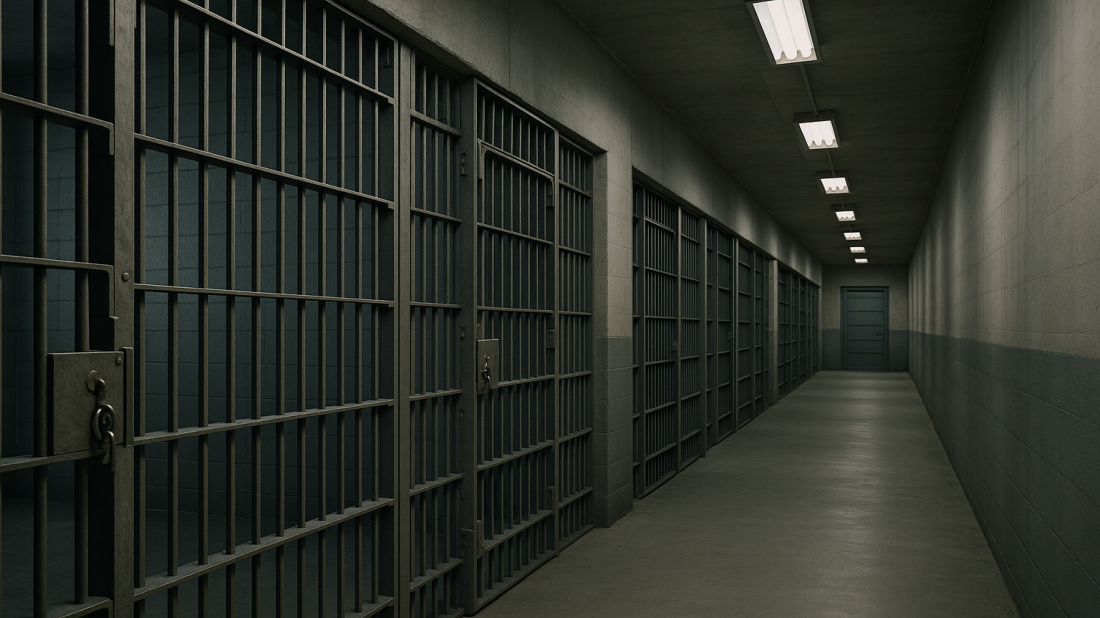Somali airstrike kills 15 al-Shabaab militants in Middle Shabelle
The Somali Army carried out a targeted airstrike in southern Somalia, killing 15 al-Shabaab militants, the country’s Defence Ministry said on Sunday...

What shapes human nature? Why do some people act with compassion while others turn cruel? For centuries, thinkers — from philosophers and playwrights to theologians and psychologists — have grappled with these timeless questions, searching for what lies at the heart of good and evil.
American psychologist Philip Zimbardo was one of the questioners, too.
In August 1971, Zimbardo led a study at Stanford University to examine how social roles influence behaviour. Funded by the U.S. Office of Naval Research, the experiment created a simulated prison in the basement of a campus building and assigned 24 healthy college students to act as either guards or prisoners, according to Britannica.
The aim was to observe the psychological effects of perceived power. The experiment was scheduled to last two weeks, but was abruptly ended after just six days due to escalating psychological abuse and emotional breakdowns.
More than 70 students applied to take part in the study.
Those selected were paid $15 per day and randomly assigned roles as guards or prisoners. The "prisoners" were mock-arrested by real police, blindfolded, and delivered to the faux prison.
There, they were stripped of personal identity, dressed in smocks, given ID numbers, and had one foot chained.
The "guards" wore khaki uniforms and mirrored sunglasses to avoid eye contact.
While they were instructed not to use physical violence, they were given authority to maintain order. The entire environment was designed to simulate the oppressive conditions of a real prison.
By the second day, prisoners rebelled.
Guards quickly developed a system of punishments to maintain control. Over the next few days, their behaviour became increasingly cruel, ranging from psychological manipulation to dehumanisation.
Prisoners experienced emotional distress; three had to be released early due to breakdowns.
Zimbardo, who also acted as prison superintendent, did not intervene—until a visiting researcher objected.
Shocked by what she saw, she urged Zimbardo to end the study, which he did on the sixth day.
The Stanford Prison Experiment drew immediate criticism for its ethical shortcomings. Participants suffered real emotional trauma, and critics argued that the conditions were poorly controlled and that Zimbardo had allowed the abuse to escalate.
Zimbardo later claimed that the guards' behaviour was driven by the situational pressures and lack of accountability—what psychologists call deindividuation, where individuals lose their sense of personal responsibility in group settings.
However, other researchers argued the experiment was flawed from the start.
Some pointed out that the call for volunteers attracted people with authoritarian tendencies.
In 2002, the BBC conducted a similar experiment where participants resisted tyranny rather than embraced it.
Deindividuation theory suggests that in groups, people are more likely to act impulsively or aggressively when they feel anonymous and unaccountable.
Zimbardo and others argued that anonymity, diffused responsibility, and heightened arousal—such as being in a group—can lower self-awareness and reduce concern for consequences.
Later research refined this idea, showing that deindividuated people don’t always become violent—rather, they tend to conform more strongly to group norms, whether positive or negative.
Despite ethical backlash, the Stanford Prison Experiment remains one of the most cited studies in social psychology.
It influenced how psychologists and ethicists think about power, identity, and institutional settings. It also prompted tighter regulations on human research ethics in the U.S.
The study inspired books, documentaries, and films—including Das Experiment (2001), its American remake The Experiment (2010), and The Stanford Prison Experiment (2015), which featured Zimbardo’s input.
The experiment continues to shape discussions on institutional abuse, especially in prisons, the military, and law enforcement. It serves as a cautionary tale about unchecked power, situational influence, and the ease with which ordinary people can commit extraordinary acts under the right conditions.
Zimbardo himself later reflected, “The line between good and evil is permeable. And almost anyone can be induced to cross it when pressured by situational forces.”
U.S. Ambassador to NATO Matthew Whitaker said China has the power to bring an end to Russia’s war in Ukraine, arguing that Beijing is enabling Moscow’s military campaign.
American figure skating star Ilia Malinin endured a dramatic collapse in the men’s free skate on Friday night, falling twice and tumbling out of medal contention at the Milan Cortina Winter Olympics as Kazakhstan’s Mikhail Shaidorov surged to a surprise gold medal.
“Respected and feared globally,” U.S. President Donald Trump told troops at Fort Bragg on Friday (13 February), framing America’s renewed strength against to mounting pressure on Iran amid stalled nuclear talks.
Speaking at Munich Security Conference, Ukrainian foreign minister Andrii Sybiha calls for decisive steps ahead of expected Geneva talks
Thousands of fans packed River Plate’s Monumental Stadium in Buenos Aires on Friday for the first of three sold-out concerts by Puerto Rican reggaeton star Bad Bunny, as part of his “Debí Tirar Más Fotos” World Tour.
Measles cases across Europe and Central Asia fell sharply in 2025 compared to the previous year but health officials have warned that the risk of fresh outbreaks remains unless vaccination gaps are urgently addressed.
A Florida university has become a new hotspot in a widening U.S. measles outbreak, with health officials confirming multiple infections and hospitalisations.
The World Health Organization has added the Nipah virus to its list of the world’s top 10 priority diseases, alongside COVID-19 and the Zika virus, warning that its epidemic potential highlights the global risk posed by fast-spreading outbreaks.
Belgian authorities are examining suspected cases of infants falling ill after consuming recalled Nestle baby formula, amid warnings that confirmed infections may be underestimated due to limited testing requirements.
Two Nipah infections involving health workers in India have triggered heightened screening across Southeast Asia as authorities move to prevent the high fatality virus from spreading beyond the country.
You can download the AnewZ application from Play Store and the App Store.

What is your opinion on this topic?
Leave the first comment